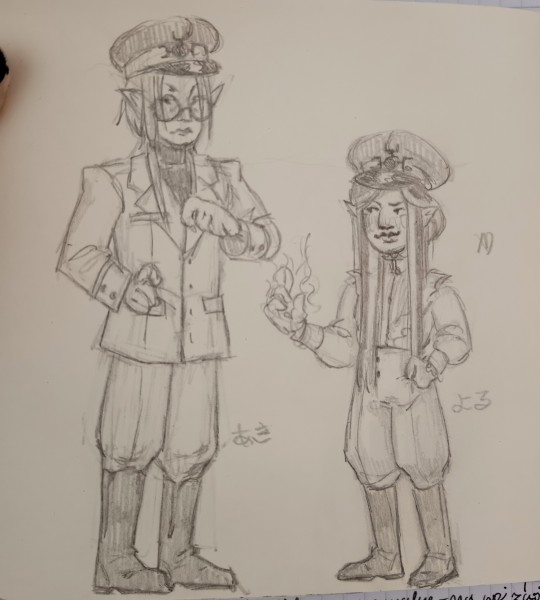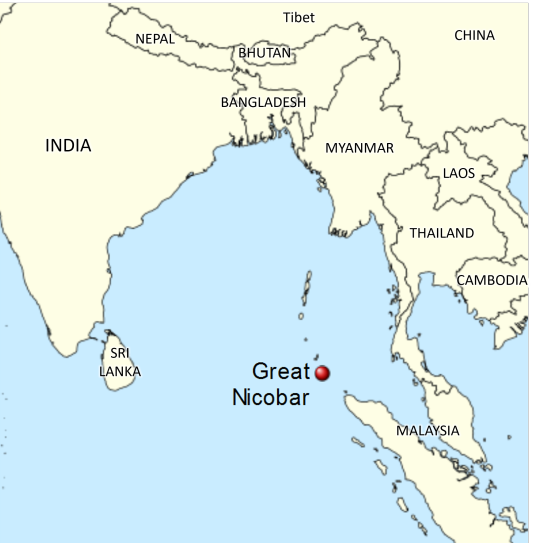#oil and gas projects
Explore tagged Tumblr posts
Text
Excerpt from this story from Grist:
In the landscape of international finance for fossil fuels, some of the most important players are obscure government bodies known as “export credit agencies.” These agencies provide funding to companies seeking to build large and risky infrastructure projects, often in developing countries. In return, the developers of those projects purchase construction materials or other goods from the country of the agency. For instance, an oil pipeline company might take a loan from a German export credit agency in exchange for using German steel in the pipeline.
Export credit agencies have become some of the world’s largest public funding sources for energy infrastructure, providing far more money than multilateral institutions like the World Bank, while avoiding much public scrutiny.
Now, as Joe Biden’s administration winds to a close, officials are working with international partners to push forward an agreement that would see export credit agencies pull back almost all funding for oil and gas projects, a measure the administration had balked on supporting before Donald Trump’s reelection.
The talks are taking place within the Organization for Economic Cooperation and Development, or OECD, a group of 38 wealthy countries that coordinate on export credit terms to prevent any one country from distorting trade relations. The countries are trying this month to hash out a verbal agreement on how to regulate their export credit agencies.
If such an agreement comes together, it would force a sea change in policy for the United States’ own export credit agency, which is known as the Export Import Bank of the United States, or EXIM. This independent agency is among the last remaining channels through which the U.S. government provides financial support to fossil fuel interests overseas. If the OECD agrees to stop export credits for fossil fuels, EXIM will have to cease approving loans to oil and gas infrastructure, potentially eliminating billions of dollars in future support for such projects.
69 notes
·
View notes
Text
LA Wildfires: 16 Deaths and Climate Crisis Implications
Here are the top 10 stories today, meticulously organized in regional order: Biden Administration Delays Enforcement of Order Blocking Nippon Steel, US Steel Deal – In a significant move, the Biden administration has opted to postpone the enforcement of an order that would impact the merger between Nippon Steel and US Steel. This decision carries implications for trade relations and industrial…
#Anita Bryant#Anti-Gay Crusader#Biden Administration#Climate Change#Donald Trump Sentencing#geopolitical tensions.#judicial rulings#LA Fire Chief#LGBTQ+ rights#Los Angeles County Wildfire#Nippon Steel#Oil and Gas Projects#russia#social media governance#Supreme Court#TikTok#Title IX Rules#US Sanctions#US Steel Deal
1 note
·
View note
Text
happy earth day!

#me and my poison ivy rashes are celebrating 🎉🥳#earth day#environmentalism#environment#alaska#us politics#usa#joe biden#i know y'all didn't like him but this is seriously awesome (but still be mad at him for the willow project)#biden administration#oil#anti oil#climate change#climate crisis#climate action#pollution#oil and gas#important#petrol#petroleum#fuel#fossil fuels#news#us news#politics
3 notes
·
View notes
Text







A lot of Aki because I love him, Hitsu (not a self insert) and unfinished art trade (giga flop)
#art dump#i love aki sm uhhh#due to my aki favouritism#and currently reading stalowe szczury#i impulsively bought a gas mask#im so happy#getting a gas mask was one of my biggest childhood dreams unironically#heatsu art#traditional art#artists on tumblr#doodle#my art#heatsu oc#idk whay else i#i forgot i can post here#because im busy with social project for a competition#snd school in general#ehhhh#original character#sketch#oil pastles
6 notes
·
View notes
Text
Sabotaging Oil and Gas Infrastructure Is an Act of Climate Heroism
"In the summer of 2016, Jessica Reznicek, then a 35-year-old spiritual activist following the tradition of the Catholic Worker and the Plowshares movements, and Ruby Montoya, a 27-year-old former preschool teacher and Catholic Worker, carried out multiple acts of sabotage against pipelines and machinery used in the construction of the Dakota Access Pipeline at Standing Rock.
"During the night Donald Trump was elected president, the two women trespassed onto the construction site of Energy Transfer, the conglomerate of companies behind the pipeline, and burned down five pieces of heavy machinery. Thereafter they learned how to use welding torches to destroy valves on steel pipes, and during the year 2017 managed to sabotage pipelines up and down the state of Iowa. They also successfully continued their arson attacks against the heavy machinery used in the construction of the pipeline ...
"The kinds of actions carried out by Reznicek, Montoya and others have the potential to capture greater attention, galvanize a broader mobilization, and thus play a critical role in resisting the destruction of the planetary biosphere."
#Jessica Reznicek#Ruby Montoya#sabotage#direct action#pipelines#oil projects#oil#gas#oil and gas#fossil fuels#climate crisis#climate breakdown#climate change#climate#climate activism#climate activists#activism#activists
17 notes
·
View notes
Text
How the Oil & Gas Industry in Dubai is Evolving in 2025
How the Oil & Gas Industry in Dubai is Evolving in 2025
The oil & gas industry in Dubai has long been a key role of the UAE’s economic success. Although Dubai’s economy has diversified over the years, oil and gas still play a significant role in shaping the region’s energy sector. As we move into 2025, several major trends are reshaping the industry, from digital transformation to sustainability initiatives. In this article, we explore how oil companies in Dubai are adapting to new challenges and opportunities.
The Current State of the Oil & Gas Industry in Dubai
Dubai is home to some of the biggest oil and gas companies in the region. While much of the UAE’s oil reserves are concentrated in Abu Dhabi, Dubai still plays a strategic role in refining, storage, and distribution.
Key role include Emirates National Oil Company (ENOC) and Dragon Oil, both of which have helped strengthen Dubai’s position in the global oil market. The government has also encouraged private investments, allowing oil companies in Dubai to expand their reach internationally. With advanced infrastructure, strategic trade routes, and government-backed initiatives, Dubai remains a major hub for the global energy sector.
Key Trends Shaping the Oil & Gas Industry in 2025
1. Shift Towards Renewable Energy Integration
One of the biggest changes in the oil & gas industry in Dubai is the increasing focus on renewable energy. The UAE has ambitious sustainability goals, aiming for net-zero emissions by 2050.
Dubai is actively investing in solar energy, hydrogen production, and carbon capture technologies to balance traditional oil production with greener alternatives. The Mohammed bin Rashid Al Maktoum Solar Park, one of the largest in the world, is a prime example of Dubai’s commitment to a diversified energy sector.
2. Digital Transformation in Oil & Gas
Technology is playing a critical role in reshaping oil and gas companies in Dubai. Artificial Intelligence (AI), Internet of Things (IoT), and blockchain are being integrated into operations to enhance efficiency and reduce costs.
AI and IoT are being used for predictive maintenance, reducing downtime in oil fields and refineries.
Blockchain technology is improving transparency and security in oil trading and logistics.
Automation is streamlining drilling and refining processes, improving overall productivity.
By adopting digital solutions, oil companies in Dubai are staying ahead of the competition while improving sustainability.
3. Sustainability and ESG (Environmental, Social, and Governance) Initiatives
With global pressure to reduce carbon emissions, oil and gas companies in Dubai are investing in eco-friendly technologies. Carbon capture and storage (CCS) is one of the key areas of focus, helping reduce the environmental impact of fossil fuel production.
In addition, companies are prioritizing corporate social responsibility (CSR) programs, focusing on worker safety, community development, and reducing industrial waste. Dubai’s leadership is also enforcing stricter environmental policies to ensure sustainable operations within the oil and gas sector.
Major Innovations Driving the Industry
1. Advanced Drilling and Exploration Technologies
With oil fields becoming harder to access, oil companies in Dubai are adopting new exploration techniques. Enhanced Oil Recovery (EOR) methods are improving extraction efficiency, ensuring long-term production stability.
2. Smart Refineries and AI-Driven Optimization
Dubai is integrating AI-driven smart refineries that can optimize production in real time. These refineries use automation to improve efficiency, reduce emissions, and minimize waste. Companies like ENOC are leading the charge with high-tech refineries that align with Dubai’s sustainability goals.
3. Enhanced Oil Recovery (EOR) Techniques
EOR techniques, such as chemical and gas injection, are being used to extract more oil from existing reserves. This ensures maximum utilization of resources while maintaining profitability in a competitive market.
Top Dubai Oil & Gas Projects in 2025
Several top Dubai oil & gas projects are set to shape the industry’s future. Some of the most notable include:
Dubai LNG Terminal – A massive liquefied natural gas (LNG) facility aimed at improving energy security.
ENOC Refinery Expansion – Enhancing refining capacity to meet growing demand.
Hydrogen Energy Projects – Investment in green and blue hydrogen production for clean energy initiatives.
These projects demonstrate Dubai’s commitment to innovation and energy diversification.
Regulatory Changes and Their Impact
1. Updated Policies Affecting Oil & Gas Companies
The UAE government is implementing new policies to promote energy diversification, environmental protection, and investment transparency. These regulations aim to make Dubai’s oil & gas sector more competitive on a global scale.
2. Foreign Investment and Business Opportunities
Dubai’s open economy and business-friendly environment make it an attractive hub for foreign investors. New policies are encouraging international partnerships, allowing global oil and gas companies to establish a strong presence in Dubai.
The Future of Oil & Gas in Dubai
The oil & gas industry in Dubai is undergoing a significant transformation. While traditional oil production remains crucial, Dubai is investing heavily in clean energy, digital solutions, and innovative projects to ensure long-term sustainability.
As Dubai continues to evolve, businesses looking to enter the market have immense opportunities. At Exporters Worlds, we help connect oil and gas companies with the right suppliers and buyers through our top B2B marketplace. Whether you’re an investor, supplier, or trader, Dubai’s dynamic energy sector offers vast potential.
Conclusion
Dubai’s oil & gas industry is evolving at a rapid pace, driven by technology, sustainability, and strategic investments. The integration of renewable energy, AI-driven solutions, and major infrastructure projects is shaping the future of the sector.
For businesses and investors looking to enter the market, now is the perfect time to explore opportunities in Dubai’s energy industry. Exporters Worlds is your dedicated partner in success, connecting buyers with suppliers in the oil & gas sector and beyond.
Stay ahead of the industry changes and explore the limitless possibilities Dubai’s energy market has to offer!
#list of oil & gas companies in dubai#list of oil companies in dubai#oil companies in dubai#oil company in dubai#oil and gas companies#top dubai oil & gas projects#top 10 oil and gas companies in dubai#oil and gas industry in dubai#oil and gas companies dubai#petroleum companies#top oil companies in dubai#top oil and gas companies in dubai
0 notes
Text
USA please listen to me: the price of “teaching them a lesson” is too high. take it from New Zealand, who voted our Labour government out in the last election because they weren’t doing exactly what we wanted and got facism instead.
Trans rights are being attacked, public transport has been defunded, tax cuts issued for the wealthy, they've mass-defunded public services, cut and attacked the disability funding model, cut benefits, diverted transport funding to roads, cut all recent public transport subsidies, cancelled massive important infrastructure projects like damns and ferries (we are three ISLANDS), fast tracked mining, oil, and other massive environmentally detrimental projects and gave the power the to approve these projects singularly to three ministers who have been wined and dined by lobbyists of the companies that have put the bids in to approve them while one of the main minister infers he will not prioritise the protection of endangered species like the archeys frog over mining projects that do massive environmental harm. They have attacked indigenous rights in an attempt to negate the Treaty of Waitangi by “redefining it”; as a backup, they are also trying to remove all mentions of the treaty from legislation starting with our Child Protection laws no longer requiring social workers to consider the importance of Maori children’s culture when placing those children; when the Waitangi Tribunal who oversees indigenous matters sought to enquire about this, the Minister for Children blocked their enquiry in a breach of comity that was condemned in a ruling — too late to do anything — by our Supreme Court. They have repealed labour protections around pay and 90 day trials, reversed our smoking ban, cancelled our EV subsidy, cancelled our water infrastructure scheme that would have given Maori iwi a say in water asset management, cancelled our biggest city’s fuel tax, made our treasury and inland revenue departments less accountable, dispensed of our Productivity Commission, begun work on charter schools and military boot camps in an obvious push towards privatisation, cancelled grants for first home buyers, reduced access to emergency housing, allowed no cause evictions, cancelled our Maori health system that would have given Maori control over their own public medical care and funding, cut funding of services like budgeting advice and food banks, cancelled the consumer advocacy council, cancelled our medicine regulations, repealed free prescriptions, deferred multiple hospital builds, failed to deliver on pre-election medical promises, reversed a gun ban created in response to the mosque shootings, brought back three strikes = life sentence policy, increased minimum wage by half the recommended amount, cancelled fair pay for disabled workers, reduced wheelchair services, reversed our oil and gas exploration ban, cancelled our climate emergency fund, cut science research funding including climate research, removed limits on killing sea lions, cut funding for the climate change commission, weakened our methane targets, cancelled Significant National Areas protections, have begun reversing our ban on live exports. Much of this was passed under urgency.
It’s been six months.
18K notes
·
View notes
Text
FlexSleeve®: Your Pipeline's Ultimate Shield

Pipeline corrosion is a silent threat causing billions in damages annually. FlexSleeve®, manufactured by Lined Pipe Systems (LPS), is the ultimate defense. This innovative, flexible sleeve protects pipeline joints from corrosion, preventing leaks, environmental disasters, and costly repairs.
Key benefits of FlexSleeve Technology by LPS:
Superior corrosion protection
Easy and fast installation
Significant cost savings
Environmentally friendly
Don't risk pipeline failure. Contact Lined Pipe Systems today for expert guidance and a customized solution.
Additionally, I suggest reading out “Benefits of Using LPS CCB Sleeves for Your Pipeline Project.”
Furthermore, check out “FlexSleeve®: The Ultimate Solution for Pipeline Corrosion Prevention.”
#USA#Pipeline#pipeline technology#brazil#africa#large pipeline#pipeline projects#oil and gas industry#technology#manufacturer
0 notes
Text
Tom Engelhardt: The Candidate from Hell
The Man of the Moment (And What a Moment It Is!) Donald Trump is all too literally the candidate from hell and, yes, he’s threatening to take the United States and the world to — no place else! — hell and back. He’s the greatest danger to this planet imaginable. And I’m not even thinking about what else he’d do, were he to win election 2024 and return to the Oval Office, having reassured his…
#2024 election#climate change#Climate Emergency#global warming#Heat#JD Vance#Kamala Harris#oil and gas#Project 2025#The Candidate from Hell#Tom Engelhardt#Trump
0 notes
Text
Genocide experts warn that India is about to genocide the Shompen people
Who are the Shompen?
The Shompen are an indigenous culture that lives in the Great Nicobar Island, which is nowadays owned by India. The Shompen and their ancestors are believed to have been living in this island for around 10,000 years. Like other tribes in the nearby islands, the Shompen are isolated from the rest of the world, as they chose to be left alone, with the exception of a few members who occasionally take part in exchanges with foreigners and go on quarantine before returning to their tribe. There are between 100 and 400 Shompen people, who are hunter-gatherers and nomadic agricultors and rely on their island's rainforest for survival.

Why is there risk of genocide?
India has announced a huge construction mega-project that will completely change the Great Nicobar Island to turn it into "the Hong Kong of India".
Nowadays, the island has 8,500 inhabitants, and over 95% of its surface is made up of national parks, protected forests and tribal reserve areas. Much of the island is covered by the Great Nicobar Biosphere Reserve, described by UNESCO as covering “unique and threatened tropical evergreen forest ecosystems. It is home to very rich ecosystems, including 650 species of angiosperms, ferns, gymnosperms, and bryophytes, among others. In terms of fauna, there are over 1800 species, some of which are endemic to this area. It has one of the best-preserved tropical rain forests in the world.”
The Indian project aims to destroy this natural environment to create an international shipping terminal with the capacity to handle 14.2 million TEUs (unit of cargo capacity), an international airport that will handle a peak hour traffic of 4,000 passengers and that will be used as a joint civilian-military airport under the control of the Indian Navy, a gas and solar power plant, a military base, an industrial park, and townships aimed at bringing in tourism, including commercial, industrial and residential zones as well as other tourism-related activities.
This project means the destruction of the island's pristine rainforests, as it involves cutting down over 852,000 trees and endangers the local fauna such as leatherback turtles, saltwater crocodiles, Nicobar crab-eating macaque and migratory birds. The erosion resulting from deforestation will be huge in this highly-seismic area. Experts also warn about the effects that this project will have on local flora and fauna as a result of pollution from the terminal project, coastal surface runoff, ballasts from ships, physical collisions with ships, coastal construction, oil spills, etc.
The indigenous people are not only affected because their environment and food source will be destroyed. On top of this, the demographic change will be a catastrophe for them. After the creation of this project, the Great Nicobar Island -which now has 8,500 inhabitants- will receive a population of 650,000 settlers. Remember that the Shompen and Nicobarese people who live on this island are isolated, which means they do not have an immune system that can resist outsider illnesses. Academics believe they could die of disease if they come in contact with outsiders (think of the arrival of Europeans to the Americas after Christopher Columbus and the way that common European illnesses were lethal for indigenous Americans with no immunization against them).
And on top of all of this, the project might destroy the environment and the indigenous people just to turn out to be useless and sooner or later be abandoned. The naturalist Uday Mondal explains that “after all the destruction, the financial viability of the project remains questionable as all the construction material will have to be shipped to this remote island and it will have to compete with already well-established ports.” However, this project is important to India because they want to use the island as a military and commercial post to stop China's expansion in the region, since the Nicobar islands are located on one of the world's busiest sea routes.
Last year, 70 former government officials and ambassadors wrote to the Indian president saying the project would “virtually destroy the unique ecology of this island and the habitat of vulnerable tribal groups”. India's response has been to say that the indigenous tribes will be relocated "if needed", but that doesn't solve the problem. As a spokesperson for human rights group Survival International said: “The Shompen are nomadic and have clearly defined territories. Four of their semi-permanent settlements are set to be directly devastated by the project, along with their southern hunting and foraging territories. The Shompen will undoubtedly try to move away from the area destroyed, but there will be little space for them to go. To avoid a genocide, this deadly mega-project must be scrapped.”
On 7 February 2024, 39 scholars from 13 countries published an open letter to the Indian president warning that “If the project goes ahead, even in a limited form, we believe it will be a death sentence for the Shompen, tantamount to the international crime of genocide.”
How to help
The NGO Survival International has launched this campaign:
From this site, you just need to add your name and email and you will send an email to India's Tribal Affairs Minister and to the companies currently vying to build the first stage of the project.
Share it with your friends and acquittances and on social media.
Sources:
India’s plan for untouched Nicobar isles will be ‘death sentence’ for isolated tribe, 7 Feb 2024. The Guardian.
‘It will destroy them��: Indian mega-development could cause ‘genocide’ and ‘ecocide’, says charity, 8 Feb 2024. Geographical.
Genocide experts call on India's government to scrap the Great Nicobar mega-project, Feb 2024. Survival International.
The container terminal that could sink the Great Nicobar Island, 20 July 2022. Mongabay.
[Maps] Environmental path cleared for Great Nicobar mega project, 10 Oct 2022. Mongabay.
#shompen#genocide#stop genocide#india#indigenous#indigenous peoples#indigenous rights#human rights#anthropology#stateless nations#end occupation#andaman and nicobar islands#nicobar islands#great nicobar#💬#asia#geopolitics#ecocide#sustainability
23K notes
·
View notes
Video
youtube
API tricone drilling bits IADC517,IADC527,IADC537 are ready for USA client
#youtube#Thanks to an innovative well construction project Burlington Resources Oil & Gas Co. drilled the Bighorn (BH) 5-6 well on Wind River's Madde
1 note
·
View note
Text
The Importance of Regular Compressor and De-hi Maintenance in Oil and Gas Operations
The oil and gas industry relies heavily on a variety of equipment to maintain continuous and efficient operations. Among the most critical of these pieces of equipment are compressors and dehydration units (commonly referred to as "de-his"). These devices are essential for the extraction, processing, and transportation of hydrocarbons. Therefore, regular maintenance of compressors and de-hi units is paramount to ensure operational efficiency, safety, and profitability.
Understanding Compressors and De-hi Units
Compressors in the oil and gas industry are used to increase the pressure of natural gas, making it easier to transport through pipelines. They play a crucial role in maintaining the flow of gas from the wellhead to processing facilities and ultimately to the end users. De-hi units, on the other hand, are responsible for removing water vapor from natural gas. This dehydration process is essential to prevent pipeline corrosion and ensure the quality of the gas.
Given their critical roles, any malfunction or downtime in these units can lead to significant operational disruptions and financial losses. This makes regular maintenance and timely repairs not just beneficial, but essential.
Enhancing Operational Efficiency
Regular maintenance of compressors and de-hi units ensures that they operate at peak efficiency. Over time, wear and tear, as well as the buildup of contaminants, can reduce the performance of these units. Routine inspections and maintenance activities, such as cleaning, lubrication, and the replacement of worn-out parts, help in maintaining optimal performance.
For example, a well-maintained compressor will operate more efficiently, consuming less energy and reducing operational costs. Similarly, a de-hi unit that is regularly serviced will more effectively remove moisture from natural gas, protecting downstream equipment and ensuring product quality.
Preventing Unplanned Downtime
Unplanned downtime is one of the most significant challenges in the oil and gas industry. Equipment failures can halt production, delay projects, and lead to substantial financial losses. Regular maintenance helps in identifying potential issues before they escalate into major problems.
By conducting routine inspections and servicing, technicians can detect early signs of wear and tear, such as unusual noises, vibrations, or changes in operating conditions. Addressing these issues promptly through compressor and de-hi repairs prevents unexpected breakdowns and minimizes the risk of costly downtime.
Ensuring Safety and Compliance
Safety is a paramount concern in the oil and gas industry. Compressors and de-hi units operate under high pressure and involve hazardous materials. Any malfunction can pose significant safety risks to personnel and the environment.
Regular maintenance ensures that these units are in good working condition, reducing the likelihood of accidents caused by equipment failure. Moreover, adhering to maintenance schedules helps companies comply with industry regulations and standards. Regulatory bodies often require documentation of maintenance activities to ensure that equipment is being properly maintained and operated safely.
Extending Equipment Lifespan
Investing in regular maintenance and timely repairs can significantly extend the lifespan of compressors and de-hi units. Like any mechanical equipment, these units are subject to wear and tear over time. However, with proper care and maintenance, their operational life can be prolonged.
Replacing worn-out parts, applying corrosion-resistant coatings, and ensuring that all components are functioning correctly can prevent premature equipment failure. This not only maximizes the return on investment but also reduces the need for frequent replacements, which can be both costly and time-consuming.
Cost-Effectiveness
While regular maintenance incurs costs, it is a cost-effective strategy in the long run. Preventive maintenance is generally less expensive than emergency repairs and unplanned downtime. By addressing minor issues before they become major problems, companies can avoid the high costs associated with equipment failure and production stoppages.
Moreover, well-maintained equipment operates more efficiently, leading to lower energy consumption and reduced operational costs. The financial benefits of regular maintenance far outweigh the expenses, making it a prudent investment for any oil and gas operation.
Implementing a Maintenance Strategy
To reap the benefits of regular compressor and de-hi maintenance, it is essential to implement a comprehensive maintenance strategy. This strategy should include:
Scheduled Inspections: Regularly scheduled inspections to identify potential issues and ensure that equipment is operating within specified parameters.
Preventive Maintenance: Routine maintenance activities, such as cleaning, lubrication, and part replacements, to prevent equipment degradation.
Predictive Maintenance: Utilizing advanced technologies, such as vibration analysis and thermal imaging, to predict equipment failures before they occur.
Training and Development: Ensuring that maintenance personnel are well-trained and equipped with the necessary skills to perform maintenance tasks effectively.
Documentation and Reporting: Keeping detailed records of maintenance activities to track equipment performance and comply with regulatory requirements.
Conclusion
In the oil and gas industry, the importance of regular compressor and de-hi maintenance cannot be overstated. These units are critical to the efficient and safe operation of oil and gas facilities. By investing in regular maintenance and timely repairs, companies can enhance operational efficiency, prevent unplanned downtime, ensure safety and compliance, extend equipment lifespan, and achieve cost savings.
Core Energy Management understands the significance of maintaining compressors and de-hi units in optimal condition. With our expertise in oil and gas services, we provide comprehensive maintenance and repair solutions tailored to meet the unique needs of our clients. Trust us to keep your operations running smoothly and efficiently, ensuring long-term success in the competitive oil and gas industry
#oil and gas#coreenergy#Project Engineering Company#Hot Shot Deliveries#Welding Services on Pipelines#Core Energy Management Services
0 notes
Text
Elevating Efficiency: ARiES One's Oilfield Staffing and Project Management Excellence
In the dynamic landscape of the oil and gas industry, the success of field operations and projects largely depends on the quality of staffing and the effectiveness of project management. ARiES One, a leading consultancy based in Houston, specializes in providing top-tier oilfield staffing services and oil and gas project management services, setting industry standards in operational excellence and project success.
Optimizing Oilfield Operations with Specialized Staffing
Staffing is a critical component in the oil and gas sector, where the need for skilled professionals who can handle complex and hazardous tasks is paramount. ARiES One's oilfield staffing services are designed to meet these demands by supplying highly qualified personnel ranging from field engineers and geoscientists to specialized support staff. By leveraging a rigorous recruitment process and a deep understanding of the industry's needs, ARiES One ensures that only the most competent and experienced professionals are placed in roles that match their expertise. This strategic alignment significantly enhances operational efficiency and safety, reducing downtime and increasing productivity.
Streamlining Projects with Expert Management Services
Project management in oil and gas involves intricate planning, execution, and monitoring to ensure that projects are delivered on time, within budget, and according to specifications. ARiES One excels in providing oil and gas project management services that encompass all phases of project lifecycle—from initial planning and design through to execution and closure. Utilizing best practices and the latest technologies, ARiES One’s project managers coordinate closely with clients and teams to mitigate risks, manage resources efficiently, and maintain stringent quality controls. This comprehensive approach not only ensures project success but also supports clients in achieving their strategic objectives.
Integrating Services for Comprehensive Solutions
What sets ARiES One apart is its ability to integrate staffing and project management services into a cohesive solution that addresses the multifaceted challenges of oil and gas operations. By understanding the interdependencies of these services, ARiES One offers a seamless experience that optimizes both human capital and project outcomes. This integrated approach allows for a more agile and responsive management style, capable of adapting to the unpredictable nature of oil and gas projects.
In conclusion, ARiES One's commitment to providing exceptional oilfield staffing and project management services makes it a pivotal partner for companies in the oil and gas industry. With a focus on enhancing efficiency, safety, and profitability, ARiES One continues to lead and innovate in an ever-evolving sector, proving that the right combination of talent and management can drive extraordinary results.
0 notes
Text
A brief bullet-point list of the executive orders Trump signed yesterday. The tiktok thing is a distraction. If you are in the US, please read this. It will take less than 5 minutes. Gift article so no paywall
Some of the items on that list:
Freeze federal hiring except for military and immigration enforcement.
Bar asylum for people newly arriving at the southern border; declare migrant crossings at the southern border to be a national emergency; suspend the entire Refugee Admissions Program.
Terminate DEI initiatives across the federal government.
Recognize only two sexes; remove protections for transgender people in federal prisons.
Withdraw the United States from the Paris Agreement, the pact among almost all nations to fight climate change.
Declare a national energy emergency, a first in U.S. history, which could unlock new powers to suspend certain environmental rules or expedite permitting of certain mining projects.
Try to undo Biden’s ban on offshore drilling for 625 million acres of federal waters; undo Biden-era tailpipe pollution regulations and other energy-efficiency, fossil fuel, and pollution regulations.
Open the Alaska wilderness to more oil and gas drilling.
Eliminate environmental justice programs across the government, which are aimed at protecting poor communities from excess pollution.
Withdraw from the World Health Organization.
Ensure that states carrying out the death penalty have a “sufficient supply” of lethal injection drugs.
Create the Department of Government Efficiency with Elon Musk in charge.
5K notes
·
View notes
Text
Key Challenges and Opportunities in the Oil And Gas Upstream Projects Market: Navigating Market Dynamics
Navigating market dynamics in the oil and gas upstream projects market presents both challenges and opportunities for companies in the industry.

Buy Full Report for More Resource Type Insights into The Oil and Gas Upstream Projects Market, Download A Free Report Sample
Here's an overview:
Challenges:
Commodity Price Volatility: Fluctuations in oil and gas prices can significantly impact project economics, profitability, and investment decisions. Companies must develop strategies to mitigate the risks associated with price volatility, including hedging strategies and cost optimization measures.
Geopolitical Risks: Upstream projects are often located in politically sensitive regions or areas prone to geopolitical tensions. Political instability, regulatory changes, and security concerns can disrupt operations and affect investment decisions, requiring companies to assess and manage geopolitical risks effectively.
Technical Complexity: Upstream projects involve complex engineering and technical challenges, particularly in offshore and unconventional environments. Deepwater drilling, high-pressure/high-temperature reservoirs, and unconventional resource extraction require specialized expertise and innovative technologies to overcome technical barriers.
Regulatory Compliance: Compliance with environmental regulations, health and safety standards, and permitting requirements poses challenges for upstream projects. Regulatory frameworks vary across jurisdictions and are subject to change, requiring companies to maintain regulatory compliance and adapt to evolving regulatory environments.
Cost Pressures: Upstream projects require substantial capital investment, and cost pressures can arise from factors such as inflation, currency fluctuations, and supply chain disruptions. Companies must optimize costs throughout the project lifecycle while maintaining operational efficiency and project economics.
Opportunities:
Technology Innovation: Technological advancements offer opportunities to improve operational efficiency, reduce costs, and optimize production in upstream projects. Innovations such as advanced seismic imaging, data analytics, automation, and digitalization can enhance exploration and production processes, increase recovery rates, and unlock new resources.
Portfolio Optimization: Companies can optimize their upstream project portfolios by prioritizing high-value assets, divesting non-core assets, and pursuing strategic partnerships and joint ventures. Portfolio optimization strategies enable companies to allocate capital more effectively, reduce risk exposure, and enhance shareholder value.
Resource Diversification: Diversifying resource portfolios by exploring new geological formations, investing in unconventional resources, and expanding into emerging markets can mitigate risks associated with commodity price volatility and geopolitical instability. Companies can capitalize on opportunities in untapped resource basins and leverage technological innovations to unlock new reserves.
Sustainability and ESG Focus: Increasing focus on environmental, social, and governance (ESG) factors presents opportunities for companies to differentiate themselves, attract investment, and enhance long-term sustainability. Investing in renewable energy, carbon capture and storage (CCS), and emissions reduction technologies can align with ESG objectives and position companies for future growth.
Market Consolidation and Collaboration: Market consolidation through mergers, acquisitions, and strategic alliances can create opportunities for companies to achieve economies of scale, access new markets, and strengthen competitive positions. Collaboration with industry peers, government agencies, and stakeholders can facilitate knowledge sharing, risk-sharing, and collective action to address common challenges and opportunities.
In summary, navigating market dynamics in the oil and gas upstream projects market requires companies to address key challenges while capitalizing on emerging opportunities. By leveraging technology innovation, optimizing portfolios, diversifying resources, prioritizing sustainability, and fostering collaboration, companies can navigate market dynamics effectively and enhance competitiveness in the evolving energy landscape.
0 notes
Text
LAND SURVEYOR - BUILDINGS Job Vacancy in Abu Dhabi, United Arab Emirates
LAND SURVEYOR - BUILDINGS Job Vacancy in Abu Dhabi, United Arab Emirates
LAND SURVEYOR – BUILDINGS Job Vacancy in Abu Dhabi, United Arab Emirates PURPOSE OF THE ROLE: Land surveyors use special equipment to conduct measurements and evaluations of sites for public, government and private property. The responsibilities of land surveyors include developing land survey reports and performing calculations of measurements and evaluations. DUTIES &…

View On WordPress
#land surveyor - buildings job in Abu Dhabi#land surveyor careers in UAE#land surveyor for building construction in Abu Dhabi#land surveyor for infrastructure projects in Abu Dhabi#land surveyor for marine projects in Abu Dhabi#land surveyor for oil and gas industry in Abu Dhabi#land surveyor for precast construction in Abu Dhabi#land surveyor for road works in Abu Dhabi#land surveyor jobs in Abu Dhabi#land surveyor vacancy in Abu Dhabi#land surveyor with AECOM or KEO or Parsons#land surveyor with civil engineering degree in Abu Dhabi#land surveyor with GIS or CAD skills in Abu Dhabi#land surveyor with good communication skills in Abu Dhabi#land surveyor with RTA or DM approval in Abu Dhabi#land surveyor with surveying equipment knowledge in Abu Dhabi#land surveyor with UAE driving license in Abu Dhabi#land surveyor with underground survey experience#senior land surveyor in Abu Dhabi
0 notes